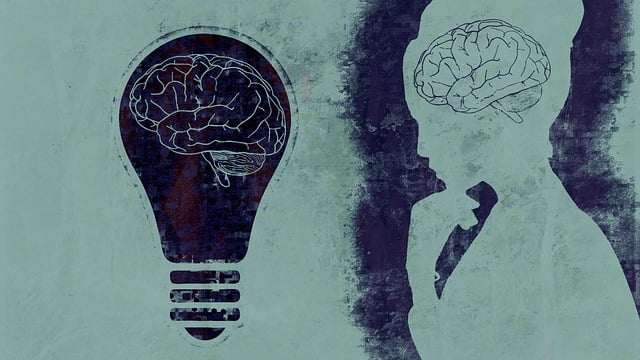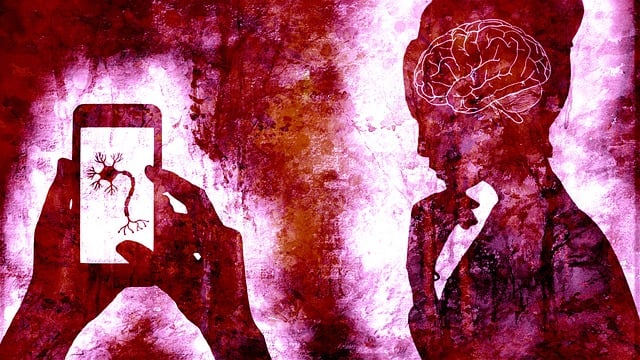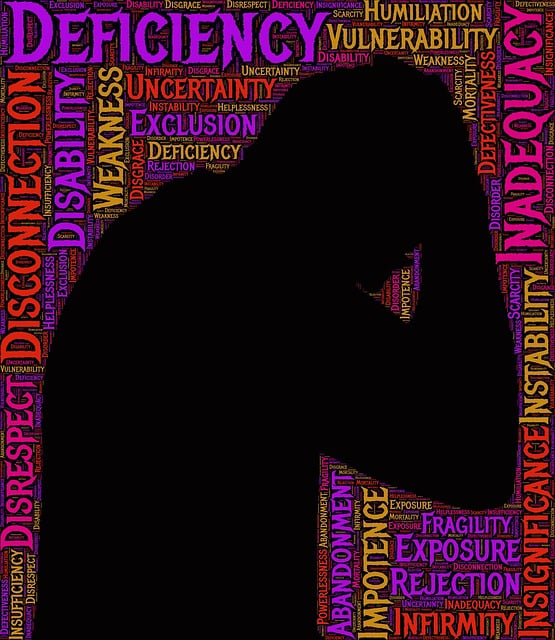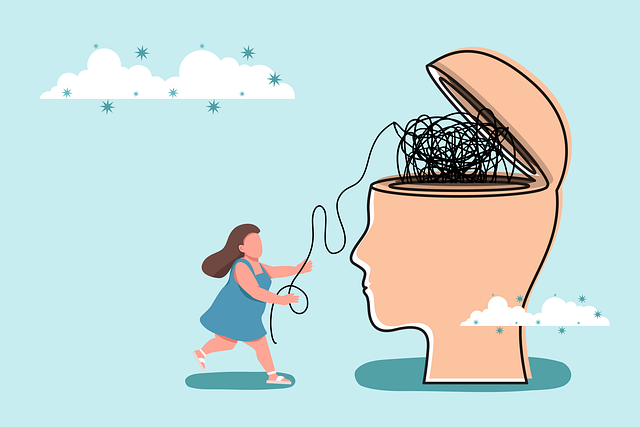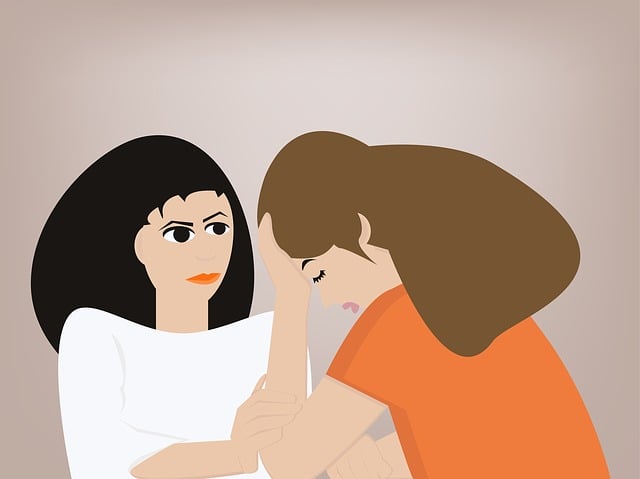Receiving a mental health diagnosis after sexual abuse in Lone Tree can be transformative through specialized therapy. This individual learned to manage trauma, developed coping strategies, and reclaimed their well-being, inspiring them to support others. Lone Tree Sexual Abuse Survivor Therapy offers evidence-based techniques and Mind Over Matter principles, fostering resilience and self-care practices. A holistic approach combining therapy, group sessions, and online forums, supported by a strong network, is crucial for managing conditions like depression and improving mood regulation. Digital platforms and awareness campaigns also provide valuable support, destigmatizing mental health issues and promoting early intervention.
“Mental illness diagnosis and treatment navigation can be daunting, especially for those who have experienced trauma like sexual abuse. This article offers a comprehensive guide for survivors, exploring critical aspects of mental health care. We delve into understanding diagnoses from a survivor’s perspective, examining the profound impact of sexual abuse on mental well-being. Additionally, we navigate available treatment options, including therapy and support services tailored to survivors’ unique needs. Learn how to build a supportive network and discover valuable resources for a successful self-care journey, emphasizing the importance of Lone Tree sexual abuse survivor therapy.”
- Understanding Mental Health Diagnoses: A Survivor's Perspective
- The Impact of Sexual Abuse on Mental Well-being
- Navigating Treatment Options: Therapy and Support Services
- Building a Supportive Network for Recovery
- Resources and Tools for Effective Self-Care Journey
Understanding Mental Health Diagnoses: A Survivor's Perspective

Receiving a mental health diagnosis can be a daunting experience, especially for those who have endured traumatic events like sexual abuse. As a Lone Tree sexual abuse survivor, navigating therapy and understanding my diagnoses was a pivotal journey towards healing. It involved delving into the complexities of my emotions, memories, and behaviors, all of which had been shaped by the profound impact of the abuse I experienced. This process required immense courage and vulnerability as I shared intimate details with therapists who became my allies in this journey.
Through therapy, I learned that mental health diagnoses are not labels but tools to help understand and address specific challenges. It was empowering to discover strategies for stress management and self-care routine development tailored to my needs. The focus on building confidence and resilience allowed me to reclaim my life, transforming the trauma into a source of strength. This experience has since inspired me to share my story and support others in their pursuit of better mental health.
The Impact of Sexual Abuse on Mental Well-being

Sexual abuse, a profound violation of an individual’s autonomy and mental well-being, often leaves lasting scars that can significantly impact a person’s ability to navigate life and their mental health. Survivors of sexual abuse may experience a range of symptoms, including anxiety, depression, post-traumatic stress disorder (PTSD), and low self-esteem, which can greatly affect their overall mental wellness. The journey towards healing for these survivors is often complex, requiring specialized support tailored to address the unique challenges they face.
Lone Tree Sexual Abuse Survivor Therapy offers a safe space for individuals to process their traumatic experiences and develop coping strategies. This form of therapy focuses on empowering survivors to reclaim their mental health by fostering resilience and self-care practices. By integrating evidence-based techniques and Mind Over Matter principles, therapists help clients navigate the complexities of their past traumas, thereby enhancing their ability to manage symptoms and improve their mental health. Such therapeutic interventions play a crucial role in Mental Health Policy Analysis and Advocacy efforts, ensuring that survivors receive the necessary support to rebuild their lives.
Navigating Treatment Options: Therapy and Support Services

Navigating treatment options is a crucial step for anyone seeking help for mental illness. Therapy plays a pivotal role in this journey, offering various approaches to address specific needs. For instance, Lone Tree Sexual Abuse Survivor Therapy focuses on providing specialized support and strategies tailored to individuals who have experienced sexual abuse, helping them process trauma and heal. This type of therapy can significantly enhance resilience and empower survivors to reclaim their lives.
In addition to therapy, a range of support services complement the healing process. These include group therapy sessions that foster a sense of community and understanding, allowing individuals to share experiences and learn from one another. Building resilience through structured programs is also vital for managing conditions like depression and improving mood regulation. Support groups and online forums dedicated to mental health offer further opportunities for connection and ongoing learning, reinforcing the importance of a holistic approach to well-being.
Building a Supportive Network for Recovery

Building a supportive network is an essential step for anyone navigating mental health challenges, especially survivors of sexual abuse like those seeking therapy in Lone Tree. This network can provide a sense of belonging and understanding, crucial elements in the recovery process. Friends, family, or support groups can offer emotional intelligence, empathy, and practical assistance tailored to each individual’s unique needs.
Surrounding oneself with like-minded people fosters a positive environment conducive to healing. Confidence boosting activities and strategies for managing anxiety relief can be shared and learned within this network. By connecting with others who have faced similar battles, survivors can feel less alone, gain valuable coping mechanisms, and develop the resilience needed to thrive in their recovery journey.
Resources and Tools for Effective Self-Care Journey

For those embarking on a journey of self-care and mental wellness, there is an array of resources and tools available to guide and support them. One such resource for Lone Tree sexual abuse survivor therapy is the integration of digital platforms designed specifically for mental health management. These platforms offer personalized dashboards where individuals can track their symptoms, mood patterns, and treatment progress, providing a structured framework for self-care. Many apps also incorporate mindfulness exercises, meditation guides, and cognitive behavioral therapy (CBT) techniques, empowering users to actively engage in their healing process.
Additionally, public awareness campaigns play a pivotal role in destigmatizing mental health issues and encouraging early intervention. These campaigns often include educational resources, support groups, and hotlines for individuals seeking help. For instance, risk assessment tools can be utilized by mental health professionals to identify potential hazards and develop tailored risk management plans, ensuring the safety and well-being of their clients. Such initiatives contribute to a holistic approach, fostering an environment where self-care is accessible and encouraged.
Mental illness diagnosis and treatment can be a daunting journey, especially for survivors of sexual abuse. By understanding mental health diagnoses from a survivor’s perspective, recognizing the impact of sexual trauma on well-being, and accessing tailored therapy and support services like Lone Tree Sexual Abuse Survivor Therapy, individuals can navigate their path to recovery. Building a robust support network and leveraging resources for self-care are pivotal steps in fostering resilience and enhancing overall mental wellness.


